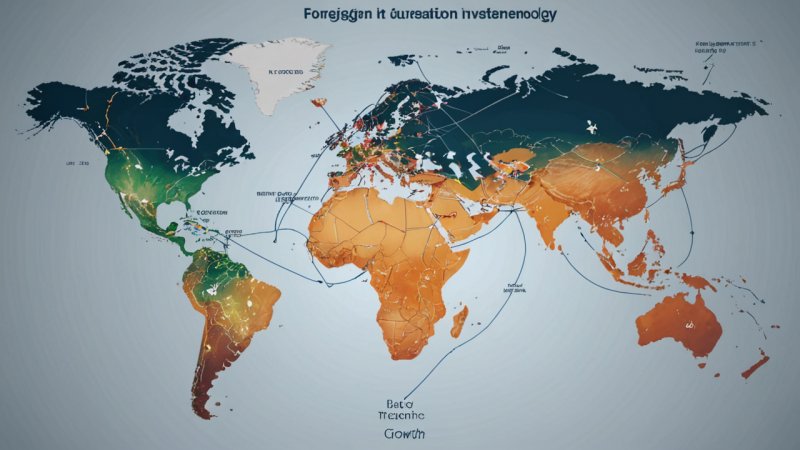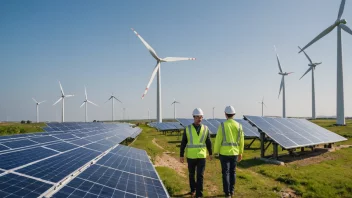Foreign Direct Investment (FDI) plays a pivotal role in the economic development of host countries. As globalization continues to reshape the landscape of international trade and investment, understanding the multifaceted impact of FDI becomes essential for policymakers, businesses, and researchers alike. This article delves into the various dimensions of FDI, exploring its benefits, challenges, and the complex interplay between foreign investors and local economies.
Understanding Foreign Direct Investment
Foreign Direct Investment refers to the investment made by a company or individual in one country in business interests in another country. This typically involves establishing business operations or acquiring assets in the foreign country. FDI can take various forms, including the establishment of a subsidiary, joint ventures, or mergers and acquisitions.
Types of Foreign Direct Investment
- Greenfield Investments: These involve creating new operational facilities from the ground up in the host country.
- Mergers and Acquisitions: This involves buying or merging with existing companies in the host country.
- Joint Ventures: This is a partnership between foreign and local companies to share resources and expertise.
Benefits of Foreign Direct Investment
FDI can bring numerous advantages to host countries. These benefits can be categorized into economic, social, and technological impacts.
Economic Growth and Development
One of the most significant benefits of FDI is its potential to stimulate economic growth. When foreign companies invest in a host country, they often bring capital, which can be used to build infrastructure, create jobs, and enhance productivity. This influx of capital can lead to increased economic activity and higher GDP growth rates.
Job Creation
FDI is a crucial source of employment in many developing countries. Foreign companies often create new jobs, providing local workers with opportunities that may not have existed otherwise. Additionally, these jobs can lead to higher wages and improved living standards.
Infrastructure Development
Foreign investors frequently invest in infrastructure, such as transportation, utilities, and telecommunications. This not only benefits the foreign company but also enhances the overall economic environment, making it easier for local businesses to thrive.
Technological Transfer
FDI can facilitate the transfer of technology and expertise from developed to developing countries. This technology transfer can lead to improved productivity and innovation within the host country. Local firms can learn from foreign companies and adopt new technologies, which can enhance their competitiveness in the global market.
Challenges and Risks of Foreign Direct Investment
Despite the benefits, FDI can also pose challenges and risks for host countries. Understanding these challenges is crucial for developing effective policies to maximize the benefits of FDI.
Market Dominance and Monopolies
One of the risks associated with FDI is the potential for foreign companies to dominate local markets. This can stifle competition and lead to monopolistic practices, which can ultimately harm consumers and local businesses.
Profit Repatriation
Foreign companies may repatriate profits back to their home countries, which can limit the economic benefits for the host country. This can create a situation where the host country sees little return on its investment in attracting foreign firms.
Environmental Concerns
FDI can sometimes lead to environmental degradation, particularly in countries with lax regulations. Foreign companies may exploit natural resources without considering the long-term environmental impact, leading to pollution and depletion of resources.
The Role of Government in Attracting FDI
Governments play a crucial role in creating an environment conducive to FDI. Various strategies can be employed to attract foreign investors while ensuring that the benefits are maximized for the host country.
Policy Framework
Developing a clear and transparent policy framework is essential for attracting FDI. This includes establishing regulations that protect investors while also ensuring that local interests are safeguarded. Policies should aim to create a stable economic environment, with predictable rules and regulations.
Incentives for Foreign Investors
Governments can offer various incentives to attract foreign investors, such as tax breaks, grants, or subsidies. These incentives can make a host country more appealing compared to others, encouraging foreign companies to invest.
Improving Infrastructure
Investing in infrastructure is vital for attracting FDI. A well-developed infrastructure can significantly enhance the operational efficiency of foreign companies, making it easier for them to conduct business.
Case Studies of Successful FDI
Examining successful FDI cases can provide valuable insights into best practices and strategies that can be replicated in other contexts.
China’s Economic Boom
China’s rapid economic growth over the past few decades can be largely attributed to its success in attracting FDI. The Chinese government implemented several reforms to create a favorable investment climate, including special economic zones that offered tax incentives and reduced regulations. As a result, China became a global manufacturing hub, attracting billions in foreign investment.
India’s IT Sector Growth
India’s information technology sector has also seen significant growth due to FDI. The Indian government has actively encouraged foreign investment in this sector, leading to the establishment of numerous IT firms and a thriving tech ecosystem. This has not only created jobs but has also positioned India as a global leader in IT services.
Conclusion
Foreign Direct Investment can be a powerful driver of economic growth and development for host countries. While it presents numerous benefits, such as job creation, technology transfer, and infrastructure development, it also poses challenges that must be carefully managed. By implementing effective policies and creating a conducive investment environment, host countries can maximize the benefits of FDI while minimizing its risks. The ongoing global competition for FDI necessitates a strategic approach that balances the interests of foreign investors with those of local economies, ensuring sustainable and inclusive growth for all stakeholders.






